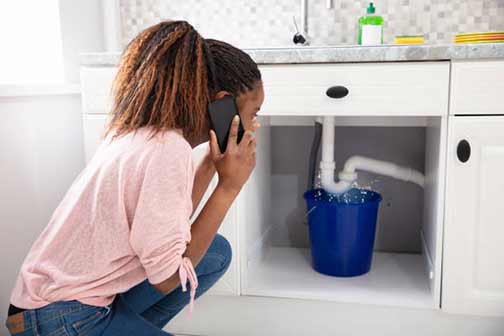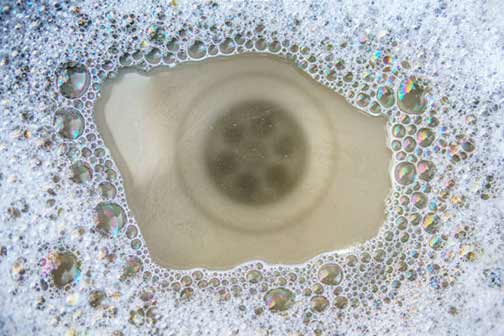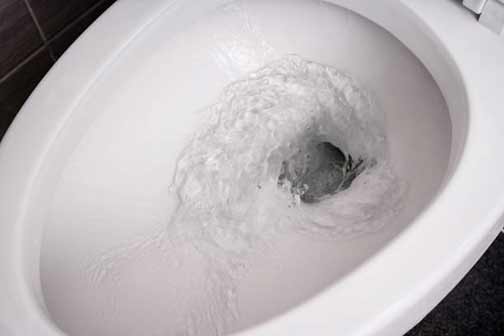
Plumbing emergencies tend to happen at the worst possible time, causing a lot of disruption and potential damage to domestic and commercial properties. It is crucial to be prepared for emergencies to minimize the impact and to achieve a speedy repair. Understanding the importance of plumbing preparedness involves knowing the potential risk and the benefit of being prepared.
Plumbing issues range from minor leaks to complete pipe bursts, each with challenges of their own. These challenges can be met by a ready organization or individual that has the appropriate equipment, knowledge, and professional relationships available. Being prepared not only saves time and money but also reduces stress and further damage.
Preparedness is a pro-active attitude, having the right resources and information at your disposal. It is understanding the layout of your plumbing system, where the main water shut-off valve is located, and having some simple tools on hand. It is also having a reputable plumber on speed dial, one that you know will attend to emergencies promptly and professionally. This forward thinking can be the difference between catastrophe and salvation when a plumbing emergency occurs.
Common Plumbing Emergencies and Their Impacts
Plumbing emergencies take various forms, each with its set of impacts. Some of the most common emergencies include:
- Burst Pipes: A burst pipe can cause extensive water damage in a short time, leading to costly repairs and potential mold infestation if not addressed quickly.
- Clogged Drains: Although commonly considered a minor inconvenience, clogged drains can escalate into serious blockages, causing water backups and potential flooding.
- Leaking Faucets and Toilets: Never-ending leaks not only waste water but can also lead to increased water bills and even structural damage in the future.
- Water Heater Malfunctions: A malfunctioning water heater means no hot water, affecting daily activities and comfort.
The impact of such emergencies can be long-term, affecting not just the physical structure but the health of its occupants. Prompt intervention and apt solutions are necessary to assist in mitigating these impacts.
For instance, a leaking pipe not only destroys the immediate area but can also undermine the structural strength of a building once water enters walls or foundations. Similarly, clogged drains provide breeding grounds for unsanitary conditions, which are detrimental to the health of occupants. Water heater malfunctions disrupt daily activities, ranging from cooking to cleanliness. Understanding these impacts emphasizes the necessity to prepare and respond early once emergencies set in.

Expert Solutions for Plumbing Emergencies
Direct access to expert solutions is a critical component of plumbing preparedness. Serious plumbers offer a range of services designed to manage emergencies in a proper and timely fashion. These experts possess the specialized training and equipment to identify and resolve issues, often employing measures that prevent further complications.
Expert plumbers provide services such as:
- Emergency Leak Repairs: Quick identification and repair of leaks to prevent water damage.
- Drain Cleaning and Unclogging: Using advanced tools to eliminate clogs and promote free draining.
- Pipe Replacement and Repair: Repairing burst pipes to maintain the plumbing system’s integrity.
- Water Heater Maintenance and Repair: Serving water heaters to maintain efficiency and preserve comfort and functionality.
Through the delegation to professional services, homeowners and businesses can be assured that plumbing emergencies are approached with attention to detail and thoroughness, with as little downtime and disruption as possible.
These experts also offer useful advice on maintaining plumbing systems in good condition, preventing any future emergencies. They can offer advice on maintenance best practices, recommend upgrades or replacement of old systems, and provide tips on water and energy conservation. This expert advice is invaluable in creating a good plumbing preparedness plan.
Establishing a Relationship with a Reliable Plumber
One of the greatest ways of preparing for plumbing emergencies is to have a connection with a good plumber. This way, help is just a call away in the event emergencies arise. A good plumber also becomes accustomed to the unique requirements and systems of a home or business, which helps them offer more effective and tailored solutions.
Forming this connection involves:
- Searching and Selecting a Trustworthy Plumber: Look for plumbers who have good reviews, are certified, and have a proven track record of trustworthiness.
- Maintenance and Checks: Conduct routine inspections to identify and repair issues before they become emergencies.
- Clear Communication: Maintain open lines of communication to ensure expectations and needs are met and understood.
Having a trustworthy plumber on hand provides peace of mind that comes with knowing professional help is there when it is most needed.
This relationship is beyond emergency repairs. A good plumber can offer maintenance services periodically, ensuring your plumbing system is always in top condition. They are able to suggest upgrades and improvements that you can make to your plumbing to make it more efficient and reliable. This proactive approach not only prevents emergencies but also extends the lifespan of your plumbing system.

Preventative Measures to Avoid Plumbing Emergencies
While it is essential to be prepared for plumbing emergencies, preventative interventions can go a great way in making sure that such emergencies never occur. Preventative interventions are proactive and routine maintenance measures to make sure that the plumbing systems are in the best state.
Some of the efficient preventative interventions are:
- Regular Inspections: Perform regular inspections on the plumbing systems to identify and resolve potential issues early.
- Proper Waste Disposal: Avoid flushing or pouring items that can cause blockages, such as grease, wipes, and large objects.
- Temperature Monitoring: Insulate pipes and monitor temperatures to prevent freezing and bursting during cold climates.
- Water Pressure Regulation: Maintain water pressure within safe ranges to prevent strain on pipes and fixtures.
By adhering to these preventive tips, homeowners and entrepreneurs can maintain their plumbing systems whole and prevent emergencies.
Preventative maintenance also includes educating household members or employees on the proper use of plumbing. Simple actions, such as not overloading garbage disposals or utilizing strainers on sinks and showers, can fend off many common plumbing issues. Spending money on quality materials and fixtures during renovations can also pay dividends in the form of fewer failures and leaks in the future.
The Role of Technology in Plumbing Preparedness
Technology has revolutionized the plumbing sector, bringing forth new tools and solutions for emergency preparedness. Technology plays a critical role in detecting, diagnosing, and resolving plumbing issues faster and more accurately.
Some of the innovations in technology are:
- Smart Leak Detectors: Devices that monitor water flow and detect leaks, sending alerts to homeowners for immediate attention.
- Video Inspection Tools: Cameras that allow plumbers to visually inspect pipes and drains from the interior, identifying issues without invasive procedures.
- Automated Shut-off Valves: Automatic systems that shut off water supply when leakage is detected, preventing extensive damage.
- Sophisticated Water Filtration Systems: Ensure safe and clean water supply while reducing pipe corrosion and clogging hazards.
The integration of technology enhances plumbing preparedness, offering innovative solutions complementing traditional methods and enhancing overall system resilience.
Technology also allows for better communication and coordination with plumbing professionals. Online booking and consultation services are provided by many plumbers, with quick response times for emergencies. Electronic maintenance records also make it easier to keep a record of the history of inspections and repairs, making more informed decisions about future plumbing needs possible.
Conclusion: The Importance of Being Prepared for Plumbing Emergencies
In conclusion, preparedness for plumbing emergencies is a valuable investment in residential and commercial safety and operation. By being sensitive to the necessity of preparedness, having an understanding of common emergencies, and having access to professional resolution, residential and commercial property owners can effectively manage and minimize the impact of plumbing emergencies.
Cultivating a relationship with a trusted plumber, engaging in preventative measures, and leveraging technology are all important aspects of a comprehensive plumbing readiness strategy. Not only do these actions protect property and save money, but they also afford peace of mind and continuity in daily life.
Lastly, the advantage of being prepared for plumbing emergencies is being capable of responding swiftly and efficiently in safeguarding property and health from sudden challenges. Not only does this preparedness minimize the direct impact of emergencies, but it also results in long-term resilience and durability of plumbing systems.
By placing plumbing preparedness as a priority, homeowners and businesses can turn potential disasters into controlled situations so that their surroundings are always safe, operational, and comfortable.

